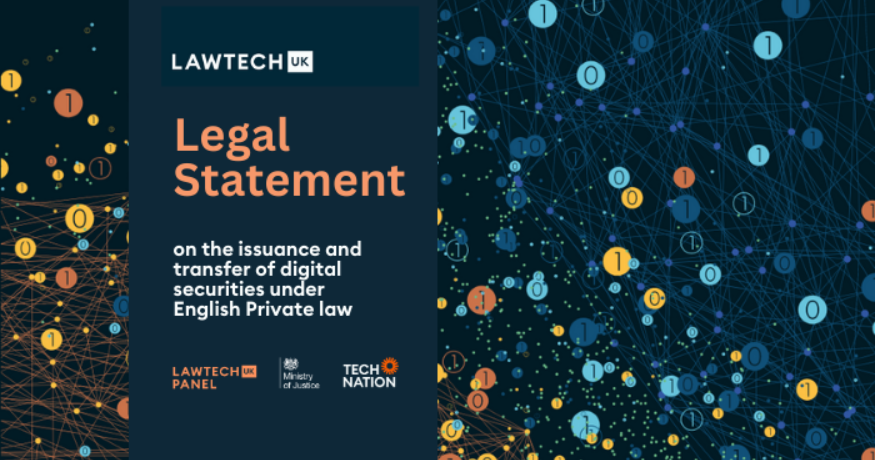
LawtechUK, a government-backed and industry-led group tasked with promoting the use of English law and the UK’s jurisdictions in the context of novel technologies, has determined that the UK legal framework is fit for purpose in relation to the issue of digital securities.
Three years after the publication of the Legal Statement on cryptoassets and smart contracts, the UKJT has turned its attention to the issuance and transfer of equity and contractual securities on DLT-based systems.
The Legal Statement on the issuance and transfer of digital securities under English private law is not meant to be a detailed academic paper or a complete look at the law of equity or debt securities. Instead, UKJT has tried to answer the questions asked in the public consultation in an easy-to-understand way (though of course, this particular field has some inevitable complexity). The statement focuses on the parts of digital securities that are potentially novel and distinctive, and discuss how well we think general legal principles apply.
We spoke to experts in legal, digital and financial industries; Master of the Rolls Sir Geoffrey Vos, Professor Sarah Green, Dr Robert Barnes, Diana Chan, Angus Fletcher, about why a supportive legal framework is important for the future of financial markets and how the UKJT’s new legal statement on digital securities will help.
LawtechUK’s commissioned research with economics and finance experts, Oxera, further explores the value to the UK of English law to facilitate the commercial use of blockchain and DLT in capital markets.
English law and digital securities – View Oxera’s research presentation – View research
. English law provides a global platform for the trading, financial and commercial contracts on which global business relies and, as such, is a major asset to the UK. In many capital markets, English law is the gold standard. This is especially true in international markets where parties can choose which law to follow. For example, English law is the primary governing law under which Eurobonds are constituted (over £5tn issued per year) and likely governs at least 46% of all global OTC interest-rate derivatives trading activity.
. There is widespread consensus among market participants that a firm legal foundation is a critical requirement for the further adoption of digital securities under English law.
. Today, digital securities activity is small relative to the total market size. But, as commercial applications of DLT-based platforms begin to scale up and attract more users, the greater the value to those users. These “network effects” mean that the market can quickly tip to a new technology, once it has attracted a critical mass of users.
. The prominence of English law in capital markets means it is well-placed to become a global standard in digital securities markets. But this is not guaranteed. If English law does not provide market participants with sufficient clarity about how digital securities will be treated, another legal system may provide that clarity. Once such a position is lost, it can be very hard to regain. This would likely be to the detriment of the UK legal services industry and the UK financial/fintech sector (which contributed over £200bn to the UK economy in 2021).
More details here
Banking 4.0 – „how was the experience for you”
„To be honest I think that Sinaia, your conference, is much better then Davos.”
Many more interesting quotes in the video below: